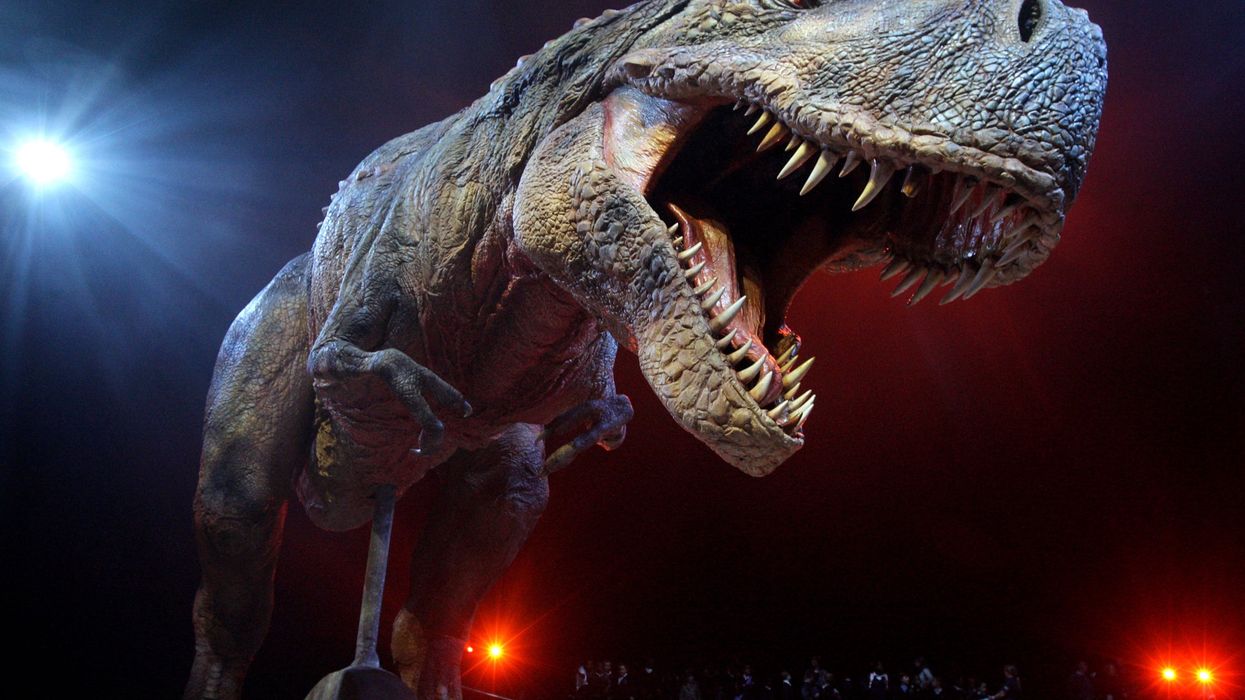Danielle Sinay
Aug 27, 2021
As is often the case with ancient predators (see: the fairly universal, yet irrational, fear of sharks), the Tyrannosaurus rex has earned the reputation of a ravenous reptile, desperate to dine upon the innocent flesh of random passerby. But contrary to this widely held belief, likely fuelled by the species’ depiction in mainstream media, the large lizard was not some mindless monster. In fact, according to new research, the T. Rex was actually quite gentle, and, a bit of a picky eater — maybe even a “foodie.” Just a very large one.
According to Paleontologists at the Institute of Dinosaur Research at Fukui Prefectural University, CT scans of the dinosaur’s lower jaw demonstrated that the T. rex actually had rather extensive — and sensitive — nerve endings in its mouth, meaning that, in reality, the “ferocious beast” was actually picking its food up with caution and care. Soichiro Kawabe, who co-authored the paper, told VICE that the T. rex had “a delicate side like other animals,” asserting that “it’s not a monster.”
“You could say it was a foodie,” he explained.
Kawabe believes that the T. rex likely held its prey down with his legs (as its arms are notoriously too tiny), “pulling the juicy and nutritious meat off the bone like humans would a chicken leg.”
“But when needed, it probably also ate the bones too. Marrow is very healthy,” he added.
Paleontologist Steve Brusatte, who is a professor at University of Edinburg and not associated with the paper, was impressed with the study as it demonstrated that the T. Rex “had brawn...but also finesse.”
“As if T. rex wasn’t frightening enough, with a body the size of a bus and a bite that could crush a car, it turns out that its jaws were highly sensitive, so it could carefully choose and manipulate its prey,” he said.
Kawabe and his colleagues also found that the T. Rex had a “sensitive snout” and impeccable control over its jaw and nose, aiding its ability to parent and make nests. “The dinosaur could have similarly carried its children in its mouth carefully,” Kawabe concluded.
Well, now we’re crying. And demand an accurate rewrite of “Jurassic Park.” (And “Jaws” while we’re at it!)
Top 100
The Conversation (0)














